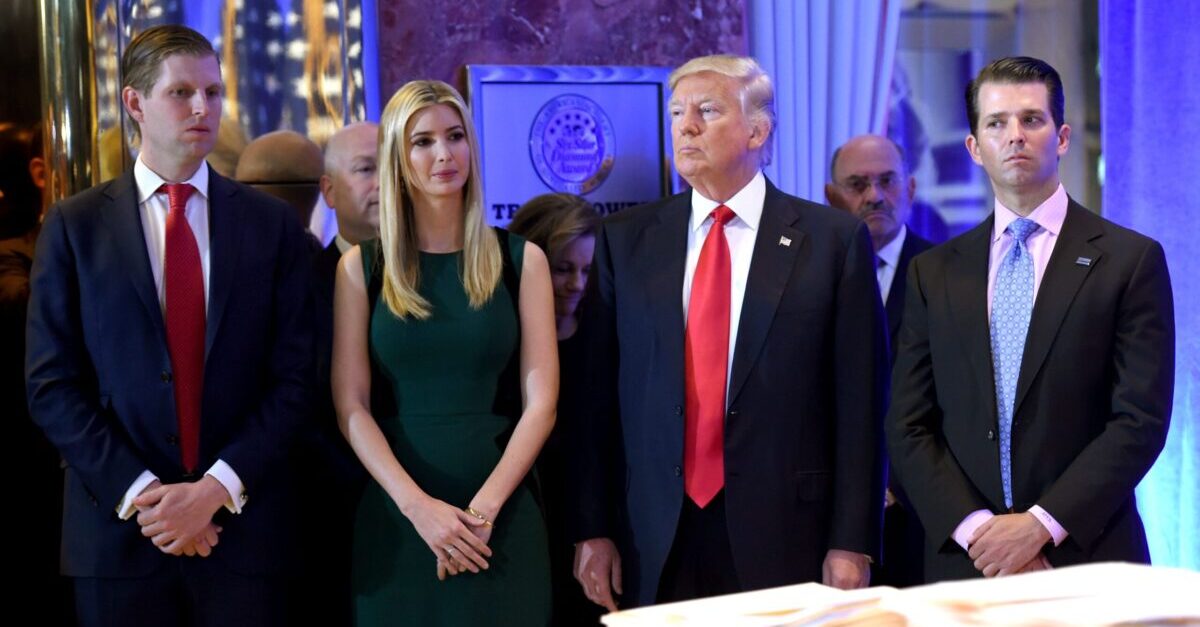
Manhattan District Attorney Cyrus Vance is currently engaged in a “white collar” criminal investigation of President Donald Trump and his family business, according to a Monday federal court filing. The contours of these investigation are based on a series of bombshell Washington Post reports about the 45th president’s alleged wealth-inflation and the Trump Organization’s alleged tax-dodging strategies.
In late July, Trump filed a complaint pleading two causes of action: “Overbreadth” and “Bad Faith” on the part of prosecutors.
“The [president’s complaint] alleges nothing new, despite the nearly year-long litigation leading up to the filing of the [complaint],” Assistant District Attorney Carey Dunne wrote. “To the contrary, [The president] now limits his bad faith claim to a single theory: that the Mazars Subpoena is overbroad, and that this alleged overbreadth—without more—demonstrates bad faith.”
Dunne concluded that those claims are “baseless.”
The president’s attorneys argued, in reverse order, that Vance and his office simply copied-and-pasted a subpoena for Trump’s tax returns and other financial records from a similar subpoena issued by the U.S House of Representatives–and therefore an illegitimate and bad faith attempt to harass.
Additionally, the president’s complaint argued that Vance’s subpoena was overbroad (i.e. seeking too much and irrelevant information) because the grand jury was based around then-candidate Trump’s infamous 2016 hush-money payments.
Not true, according to Vance and Dunne.
“[Trump’s] argument that the Mazars Subpoena is overbroad fails for the additional reason that it rests on the false premise that the grand jury’s investigation is limited to so-called ‘hush-money’ payments made by Michael Cohen on behalf of Plaintiff in 2016,” the filing notes. “[Trump] goes so far as to declare that these payments—and these payments alone—are what the ‘grand jury claims to be investigating,’ and thus the Mazars Subpoena is overbroad because it seeks documents dating back to 2011. But this Court is already aware that this assertion is fatally undermined by undisputed information in the public record.”
The Manhattan District Attorney’s Office spelled out the actual scope of the grand jury’s “inquest” for the Southern District of New York [SDNY] in order to defeat the overbreadth claim.
The Monday filing notes, at length:
Although the [DA’s] Office bears no affirmative burden to justify the breadth of the Mazars Subpoena, and although [Trump] is not entitled to know the scope and nature of the grand jury investigation, publicly available information itself establishes a satisfactory predicate for the Mazars Subpoena. Public reporting demonstrates that the [DA’s] Office had a valid basis for requesting each category and timeframe of document listed in the Mazars Subpoena. As this reporting makes clear, at the time the Mazars Subpoena was issued, there were public allegations of possible criminal activity at [Trump’s] New York County-based Trump Organization dating back over a decade. These reports describe transactions involving individual and corporate actors based in New York County, but whose conduct at times extended beyond New York’s borders. This possible criminal activity occurred within the applicable statutes of limitations, particularly if the transactions involved a continuing pattern of conduct.
“In light of these public reports of possibly extensive and protracted criminal conduct at the Trump Organization, there was nothing facially improper (or even particularly unusual) about the Mazars Subpoena, which issued in connection with a complex financial investigation, requesting eight years of records from an accounting firm,” the filing goes on before citing relevant precedent. “Courts routinely uphold grand jury subpoenas requesting documents over extended periods of time.”
Recall: Vance’s subpoena seeking documents was issued to the accounting firm of Mazars USA LLP in August 2019. Trump quickly sought an injunction to stop the accounting firm from releasing the requested documentation. The SDNY ruled against the president. As did the Second Circuit Court of Appeals.
The Supreme Court, in a landmark ruling, did much the same. Vance’s filing sums it up: The nation’s high court “unanimously rejected [Trump’s] central claim that a sitting president is absolutely immune from state criminal process.” Somewhat controversially, however, the ruling also hedged a bit and gave Trump a step-by-step guideline for how to combat the subpoena in subsequent litigation.
Per the majority opinion, a president subject to criminal process can mount “subpoena-specific constitutional challenges” which are not available to other citizens. Specifically, the nation’s chief executive can (1) “challenge the subpoena as an attempt to influence the performance of his official duties, in violation of the Supremacy Clause”; and (2) “argue that compliance with a particular subpoena would impede his constitutional duties.”
The president’s attorneys largely ignored that advice–opting instead to pursue the overbreadth and bad faith claims–which are causes of action that are always open to all citizens being subpoenaed.
University of Michigan Law Prof. Barbara McQuade, an NBC News legal analyst and former U.S. Attorney, noted that the investigation of Trump is “broader than hush money” and “includes bank and insurance fraud.”
“Bad news for the president,” remarked CNN legal analyst Elie Honig, a former federal and state prosecutor. “This shows the DA is focused on specific criminal charges and not just poking around the financials. And it’s much easier to build a standard bank fraud or tax fraud case than the complex hush money/campaign finance case.”
Read the full filing below:
Vance Memo in Support of Motion by Law&Crime on Scribd
[image via TIMOTHY A. CLARY/AFP via Getty Images]
Have a tip we should know? [email protected]